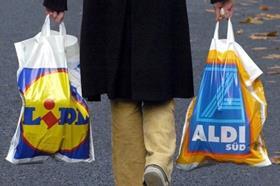
Independent discount retail is undergoing a boom to rival that of large chains such as Aldi and Lidl, according to a new survey.
The poll of 2,000 UK adults by specialist wholesaler Rowan found that 62 per cent of people now shop in independent discounters - four-fifths of whom say they will continue to use the retailers even if their personal financial circumstances improve.
Independent discounters’ customer base spans all UK demographics, the survey showed, with 69 per cent of shoppers educated to degree level and above making regular visits to their local independent.
James Russell, Rowan’s commercial director, said: “It’s no secret that Aldi and Lidl have grown recently – they are big chains, so this gets noticed. However, their smaller rivals have also boomed, but this has slipped under the radar. Arguably the growth of British independent discounters is the more significant trend.”
Most of the UK’s discount stores are either independent, or part of a small chain. In 2013, companies that operated nine or fewer stores ran 3,468 of the nation’s discounters – more than three times the number of Aldi and Lidl shops combined.
Russell added: “Unlike Aldi or Lidl, independent discounters tend be on high streets, so are ideally-placed to benefit from the new trend of customers shopping around rather than buying all their goods in one weekly supermarket visit. At the same time, they are beginning to stock more popular brands, and stock them consistently. Put together, this means more customer visits, and increased customer trust.
“Anecdotally, the companies we deal with who are experiencing the strongest growth are not the giants; they are the smaller, more entrepreneurial firms who have realised there is a discount boom and are using the flexibility afforded by their size to respond to it in a clever way.
“The threat to supermarkets from local 99p stores could be as great as the threat from Aldi and Lidl.”
When asked why they shopped in independent discounters, 56 per cent of customers said that the shopping experience has become better, while 53 per cent argued 'the products the shops sell are becoming better and more relevant to me.'



